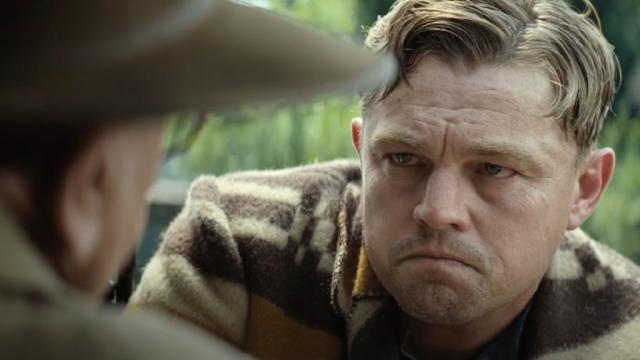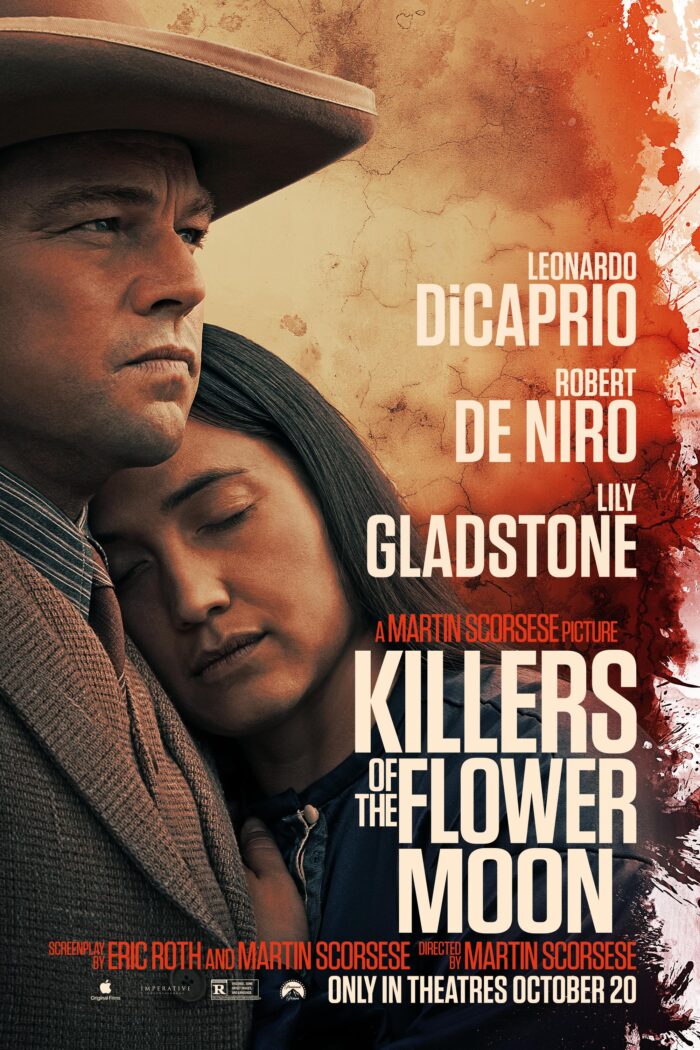Martin Scorsese will go down in history as one of the most iconic directors of all time. Aside from Steven Spielberg and Akira Kurosawa, I can’t think of a more influential filmmaker. While the vast majority of his movies focus on the darker aspects of humanity (with the underrated Hugo being a refreshing departure), it cannot be denied that many are masterpieces, depressing though they can be. Killers of the Flower Moon also elicits a swelling of conflicting emotions as it is a phenomenal achievement in storytelling and the craft, but the history and trauma it portrays wounds the heart and damns the soul
Based on the novel of the same name, Killers of the Flower Moon tells the true story of the Osage nation and their rise to prosperity when oil was discovered on their reservation. Due to this influx of wealth, many (white) people flooded to the area in an attempt to defraud them of their newfound fortune, and one easy way was to marry, murder, and then inherit the oil rights of an Osage tribe member. Ernest Burkhart (Leonardo DiCaprio) gets looped into this scheme by his treacherous uncle William King Hale (Robert De Niro) who the Osage people mistakenly believe is a staunch ally. When Ernest falls in love with Mollie Kyle (Lily Gladstone), Hale finds the perfect opportunity to steal her inheritance, which sets up an internal conflict within Ernest – does he love her or her money more?
The fact this is based on true events makes Killers of the Flower Moon utterly heartbreaking. The complete disregard for human life being sacrificed for monetary gain is terrifying, and every moment is fine-tuned to evoke a near primal response.
To tell its story, it is meticulously crafted almost to a fault. Scorsese has said this is one of, if not the most, important films he has ever made, so it makes sense that everything is tightly dialed in. All the actors give some of the best performances of their lives (and will be rewarded for it), the script leaves no room for error, and the cinematography places the viewer exactly where they need to be for each specific moment. All of this makes sense when he’s trying to show you what was essentially a small-scale genocide.

While the three-and-a-half-hour runtime is too long, musing over it for the last few days, it’s hard to determine what could have been left out, as every second feels vital to presenting the atrocity that took place. It would have been a disservice to the Osage people and the victims to gloss over their tragedy in an effort to have a shorter film. Yet it still drags in the third act which may have just been due to viewing fatigue. The ability to watch it on Apple TV will be a benefit since people will have a chance to take breaks and collect themselves.
The ending also doesn’t quite work as it wraps up too quickly and doesn’t give the story or characters a truly satisfying denouement.
Many might assume that Killers of the Flower Moon was made strictly to win awards, and while it most certainly will, that is a sardonic point of view. Ernest’s Faustian bargain takes center stage, but it is in bringing to light the tragedy of the Osage people that Scorsese hopes we can learn from the sins of our predecessors and take that wisdom forward. Killers of the Flower Moon doesn’t give us the happy ending we don’t deserve, and while there is the aforementioned lesson, even that is a bleak hope. It creates more questions than answers and lays the responsibility of figuring them out at our feet. It’s the least we can do to try to atone for a history we’ve left strewn with the blood and bodies of the innocent.
